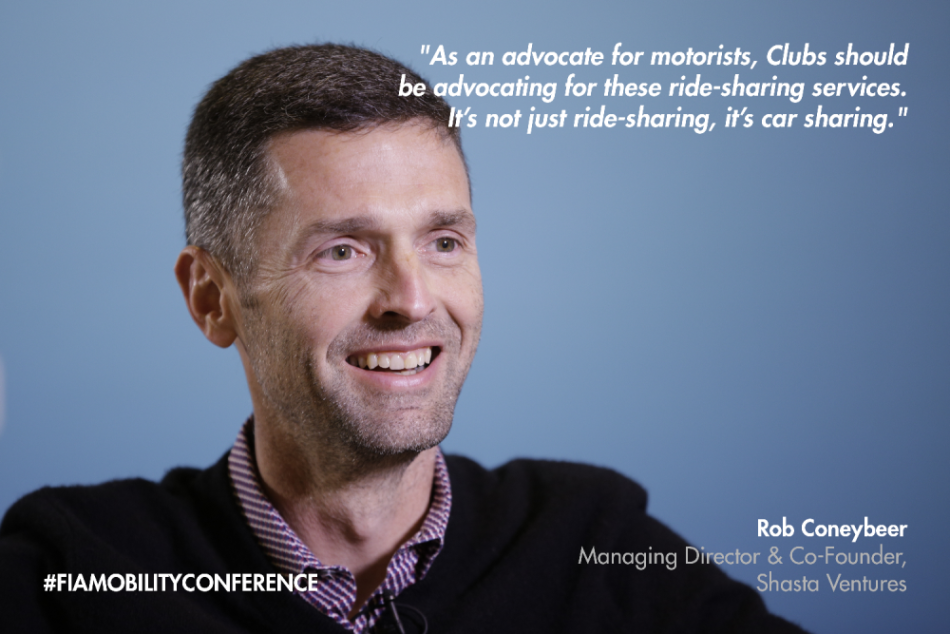Q&A with Rob Coneybeer at the 2016 FIA Mobility Conference

Q Coming from Silicon Valley, the home of disruptive technology, how do you see the rise of businesses such as Uber?
A Uber has fundamentally changed the way people think about getting around San Francisco and the Bay Area. One of the things that people don’t fully appreciate – people who don’t live in the US and San Francisco in particular – is the scale at which Uber and Lyft are operating now. In San Francisco the number of rides that you see on Uber and Lyft, has gross value of about half a billion dollars. That number is about ve times the largest size the taxi market ever was. It’s almost growing by a factor of three, year on year, so you can see that becoming over a billion dollars’ worth of rides in about a year. The scale is enormous and it’s growing fast.
People are starting to substitute other forms of getting around the Bay Area for ride sharing. Half of those rides are car pool rides, a drive with two or more passengers. When you start to think about an industry of that size, you’re starting to nd that it’s not just disrupting the taxi market but it’s starting to disrupt the rental market and mass transit.
Q Disruptors often become mainstream or are legislated out of their disruption. Do you see that happening this time around?
A Any time you have something that upsets the status quo you end up upsetting industries where people have forgotten about the needs of their consumers.
Q What’s the lesson for businesses that may have lost that customer connection?
A Well, in San Francisco there are 37,000 Uber drivers, that’s a lot of people. For auto clubs it actually spells a huge amount of opportunity. That’s 37,000 people in a city of 800,000 inhabitants. That’s a very large proportion. Each of those drivers is driving anywhere between two to 20 times as many miles as they would do as a private operator. These are operators that are incredibly valuable and when you think about some
of the services that have been provided historically by autoclubs – insurance, roadside assistance – it’s even more important for those operators to have those services.
Q Should Clubs be involved in this space? Do they need to become providers?
A Counter-intuitively cars are becoming more important than ever because in the short term, before autonomy, smartphones allow you to have far higher utilisation of these vehicles – cheaper to get around, better for the environment, better for passengers – and as an advocate for motorists, Clubs should be advocating for these ride-sharing services.
It’s not just ride-sharing, it’s car sharing, so when you think about peer-to-peer car rental, companies like Turo, Clubs should be making it easier for you to rent your car out. How do you provide the type of insurance that somebody that owns a car but wants to rent it out needs? Rather than just saying “no you can’t do that because we don’t understand it”, how do you advocate for that owner and help that motorist to do that? That’s another area of opportunity.

 Facebook
Facebook Twitter
Twitter






